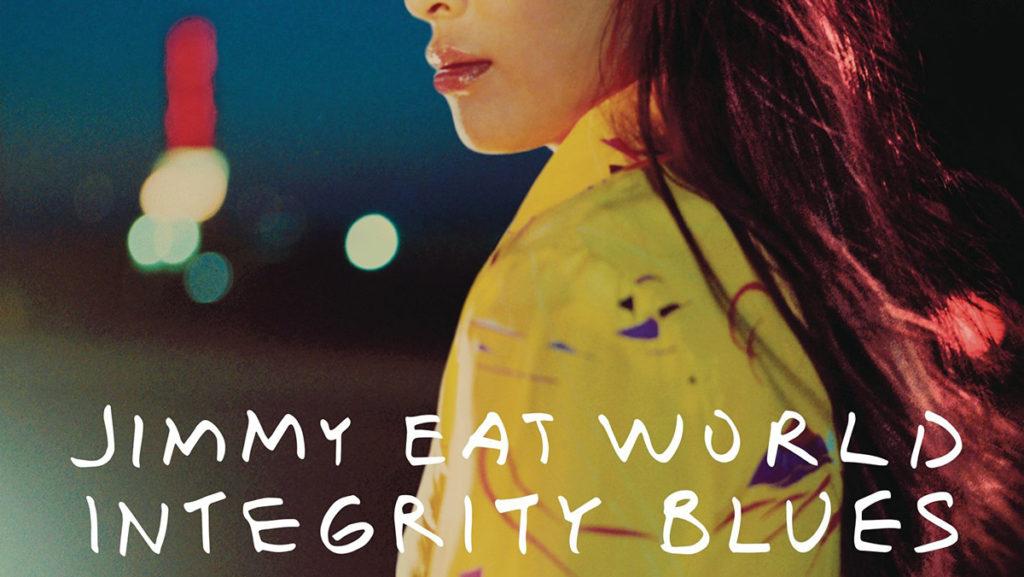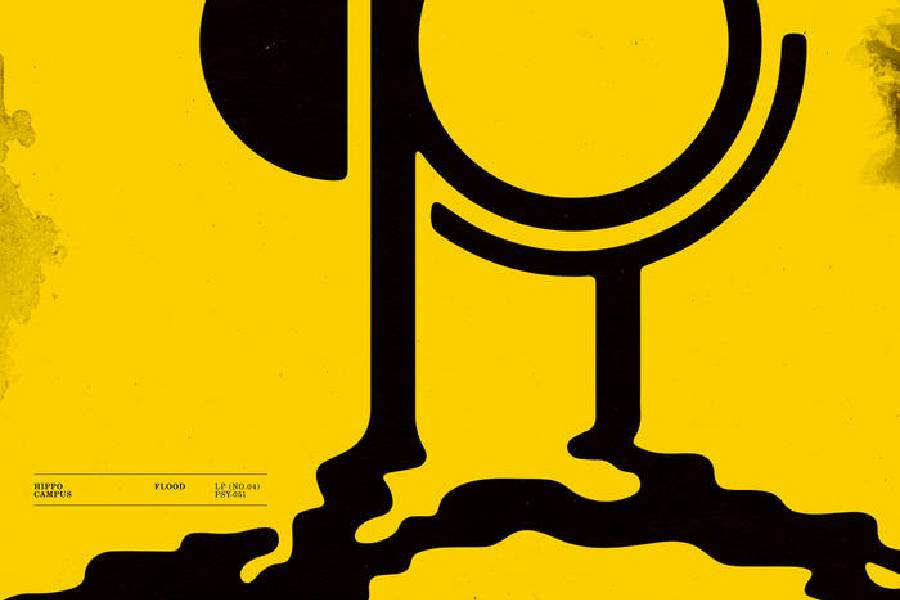It’s been 15 years since “The Middle” was released, but still it remains the best-known song by Jimmy Eat World. The band’s newest album, “Integrity Blues,” leans away from its emo-rock roots and distinguishes itself with a couple more experimental tunes while still offering something familiar.
Frontman Jim Adkins said in a Rolling Stone interview that the album explores the idea of identity, specifically the idea that people are their own worst enemy. The album also addresses how to come to terms with the life decisions one has made.
[acf field=”code1″]
The album begins with an angelic choir in “You With Me,” a tune that sounds like it belongs in a philosophical movie such as “Swiss Army Man” because of its ethereal and resonant sound. Adkins then comes in alone, with drums and guitar behind him. Although the guitar in the track is easygoing and mellow, the lyrics show a different story, as the singer wonders why his relationship is failing. He sings, “What makes our love so hard to be/ Is it you or is it you with me,” wondering whether or not his partner is the right person for him.
The next song, “Sure and Certain,” starts off with an upbeat guitar and drum melody, and follows with a repetitive chorus making it easy to sing along. Just like the first song, however, its upbeat sound masks rather bleak lyrics: “Sure and certain/ Wander ’til we’re old/ Lost and lurking/ Wonder ’til we’re cold,” Adkin sings.
Heavy and overpowering guitar riffs are the central focus on the album’s fourth song, “Pretty Grids.” “Pass the Baby,” the following song, is mostly spoken word, giving it an eerier vibe than other songs on the album. While both songs are riskier, different takes on the band’s usual sound, it doesn’t work out. Both songs have a bit too much of an overproduced studio sound to them, yet Adkins’ voice does not lend itself well to a spoken word or eerie presentation.
Later in the album is “You Are Free,” an uplifting song about self-confidence and owning one’s identity. “You are free/ To be who you want/ What you need/ Yeah, who you want/ What you need/ Baby, you are free,” Adkins sings in the chorus. “You Are Free” is the first song to have lyrics that are as inspirational and sentimental as the beat underlying them.
“The End is Beautiful” is a continuation of “You With Me,” where the singer realizes the relationship was doomed because he had an unrealistic idea of love, and realizes that the relationship needs to end. Adkins sings, “You’re gonna do what you have to/ You see the problem was us/ Tried to bend love to the picture we had in our heads.” The title of the song, “The End is Beautiful,” is a reference to the end of the relationship, beautifully freeing him and his partner. It’s one of the better songs on the album. The guitar part is simple but memorable, and there is a feeling of catharsis when Adkins sings, “It doesn’t have to hurt anymore,” because the listener can empathize with what the singer is going through. It isn’t as vocally impressive as some of the other songs, like “Sure and Certain,” but the poignant lyrics make up for what the vocals lack.
The title song, “Integrity Blues,” goes back to the distant and haunting sound of “You With Me,” and features just a keyboard and strings in the background rather than the usual guitars and drums. The song goes back to the main theme of identity, speculating that, “It’s all what you do when no one is there/ It’s all what you do when no one cares.” The song is also about the idea that the world keeps on turning, no matter what is happening in one’s life. Like most of the album, the song is effective at tapping into the listener’s emotions, and the synth keyboard matches up beautifully with Adkins’ sweet sounding voice.
While the album is a success, it misses the mark on the more experimental songs. While a bit of a departure from some of its other work, “Integrity Blues” is still not an album worth missing for long time fans, and it will be a great one for newcomers too.




















